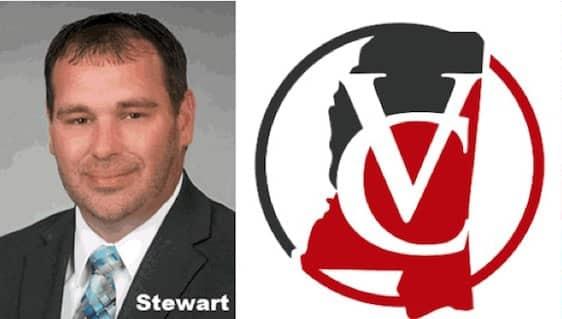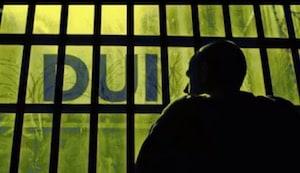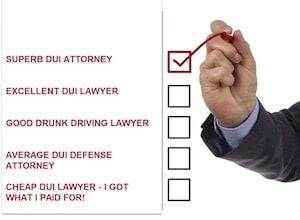First Call Attorney℠
Five Myths About DUI

Five Myths About Defending Accused Drunk Drivers
Reprinted with permission of TRIAL (March 1993)
Reprinted with permission William C. Head
Copyright the Association of Trial Lawyers of America
Almost every attorney is at one time or another confronted with a client, friend, or family member charged with drunk driving. Because accused drunk drivers are immediately charged with a crime, drunk-driving cases represent the single largest category of criminal infractions of all reported cases, with about 200,000 more cases processed each year than all theft and larceny offenses combined.
Very few accused citizens know a DUI lawyer near me. Even attorneys who do not generally handle criminal matters are routinely asked how an accused person should proceed in a drunk-driving case, so do not just settle on any attorney at law near me to be your legal advocate.
In the 1960s, driving under the influence of alcohol was considered a minor offense, leading to modest fines; in the 1990s, it is considered the most serious misdemeanor offense. In several states, repeat offenders are considered felons.
Nearly two million drunk-driving cases are filed by law enforcement officers around the country ever year. These cases take up a large portion of the criminal docket of most court systems. Because the penalties for drunk driving have increased, many of those charged with this crime now must seriously consider alternatives to pleading guilty or nolo contendere. For the rest of the 1990s, the absence of palatable alternatives for the accused driver will lead to a dramatic increase in these trials.
Most attorneys harbor many myths and misconceptions about this offense. These can lead to malpractice. In this article, I will address five myths about defending accused drunk drivers.
Myth Number 1: Most people accused of this crime are guilty.

This is perhaps the most troubling myth – one harbored by attorneys and the public. In my opinion, an attorney who believes this should never represent a person accused of drunk driving. That mindset can eliminate objectivity.
In most drunk-driving cases in which police obtain a chemical test, an infrared breath analysis machine is used, not a blood test. This primary evidence is vulnerable to attack by a skillful practitioner.
Most attorneys have no idea how woefully inadequate infrared breath machines are as evidence-gathering devices. These machines are so unsophisticated that virtually no scientist would ever trust the results as a basis for scholarly research or scientific investigation. Yet attorneys assume that since the state has approved the machine, its accuracy and reliability are not subject to change.
There are at least 30 ways to rebut the evidence from these machines if the attorney understands how the machine works, what causes them to malfunction, and that they are nonspecific for alcohol. Without doing exhaustive research, no attorney would understand their internal workings enough to cross-examine the state’s witnesses effectively on their alleged accuracy.
The “opinion” evidence gathered by police officers typically consists of field or roadside sobriety tests. These agility tests are supposed to indicate that the person suspected of drunk driving was visibly impaired or in some way “a less safe driver.”
Recent scholarly studies have shown that field sobriety tests are not given uniformly, there is no scientific basis for assuming they are valid, and most officers either require the wrong tests or improperly instruct the suspect on how to perform the tests. A defense attorney can obtain a pretrial ruling that the tests and their alleged indication of impairment must be excluded from evidence due to lack of scientific foundation and faulty instructions.

Any other “observation” evidence from a police officer will generally be inconclusive and subject to many interpretations by experts. For example, bloodshot eyes can be caused by conditions other than drunkenness, including contact lenses, allergies, or lack of sleep. The defense attorney should analyze the evidence that will likely be presented and take the time to investigate the medical background of clients and the environmental contaminants they have been exposed to. Most alleged evidence of intoxication can be neutralized or eliminated from the state’s presentation with findings from this investigation.
The defense should leave no stone unturned. These cases require detailed investigations, as does a complex murder case that involves fiber evidence, ballistics tests, or other intricate issues. Attorneys who do not investigate thoroughly and defend the client aggressively do the client a disservice and expose themselves to possible liability. In addition, they harm the legal profession by failing to fully represent the client.
Myth Number 2: Drunk driving is a minor offense.
Many veteran attorneys remember when drunk-driving convictions led to fines of $50 to $150, with no suspension of driving privileges and no penalties beyond going to court, paying the fine, and being chastised by the judge. Those days are gone.
One reason some attorneys near me still do not consider handling these cases is that their only contact with the client occurs when they enter the plea. By not filing and pursuing suppression motions or investigating possible ways to win on implied consent issues, these members of the Bar are not earning their paycheck. The attorney does not experience the penalties that later befall the client.
A client accused of drunk driving deserves to be represented zealously because an unjustified conviction will have repercussions lasting for the rest of the client’s life. Not all the “penalties” for these convictions are legal in nature.
The stigma of a conviction can exact a severe psychological toll.

A substantial number of drivers whose licenses are suspended continue to drive. Typically, they do so to provide for themselves and their families, despite the possibility of being jailed for driving with a suspended license. A surprising number are never caught. Yet, they live in terror of being stopped at a license check or a roadside sobriety checkpoint Those unjustly convicted should not have to live with this hardship.
Most of those convicted also suffer serious financial and social consequences. In most states, a drunk-driving conviction can never be removed from a driving record, so convicted offenders must endure the consequences of their DUI convictions for the rest of their lives.
Some blame themselves because they know they had something to drink before the police stopped them. However, it is not illegal for adults to drive after drinking alcoholic beverages in any state. The crime of drunk driving occurs only when the person’s blood alcohol level has exceeded the arbitrary numerical standard set by the state, or when the person has demonstrated bad driving that can be causally connected to impairment due to a high blood alcohol level.

Most attorneys would cringe at the thought that they might have poorly represented a client on a civil matter and that the substandard representation could come back to haunt them. Malpractice in drunk-driving cases carries the same potential for litigation, except that most convicted drivers don’t realize that their attorneys may not have properly represented them when advising them to plead guilty or nolo contendere without first checking into the facts of the case.
The client does not know whether the state’s case was validly made or based on an illegal stop. The client is not familiar with the many ways that breath machines may be inaccurate. That is why people need attorneys in the first place – to investigate the case thoroughly and recommend the best alternative.

Myth Number 3: Any attorney can defend an accused drunk driver.
If a friend or relative asked me for help on a matter involving antitrust litigation, my response would be to consult an expert in the field. I would probably inquire with the state bar association or phone colleagues to try to locate an expert in antitrust laws. I would try to send the client to the most skilled lawyer I could find who specializes in this area of practice.
When a prospective client walks into the average law office and asks for help on a drunk-driving case, some attorneys will agree to represent the person even if they have never handled criminal matters. The attorney may advise the person to plead guilty or nolo contendere (depending on state law) and work out an arrangement with the court to keep his or her license with the least possible suspension time. The attorney may not adequately investigate the facts of the case or get copies of documents and other evidence that are readily available through discovery.
These naive attorneys do not realize how much exposure to liability they have if they counsel clients to give up their Constitutional and statutory rights and plead guilty to this serious offense. Yet these same attorneys would probably not hesitate to refer these same clients to specialists if they were charged with securities fraud.
Some clients discover the folly of their plea before the statute of limitations on their potential malpractice against their former attorney expires. A suit for malpractice may be the only way they can hope to achieve some semblance of recovery for the devastating effects of a drunk-driving conviction.
After a conviction, these clients soon learn what most drunk-driving specialists already know: The penalties are not only serious, but like the Energizer bunny in the TV ads, they keep going and going and going. Consequences like license suspension, fines, community service, probation, mandatory counseling or alcohol treatment, and possible incarceration (even for first offenders) are well known. These cases also carry a plethora of other consequences that will confront the convicted driver days, months, or even years after.
For example, in most states insurance rates for a convicted drunk driver will increase 500 percent to 1,000 percent above the premiums paid before the conviction (if coverage isn’t canceled). In South Carolina, a person with a five-year-old car carrying only liability coverage can expect to pay $10,000 to $11,000 in additional premiums over the first three years after a first-offense drunk-driving conviction.
This increase in insurance costs is well known. But many attorneys are unaware that most credit bureaus now include drunk-driving convictions on credit reports. This not only will affect future credit, but it may also prevent convicted drivers from getting jobs where the prospective employer runs a credit check in processing job applications. A drunk-driving conviction may bar or restrict employment alternatives with a significant segment of the job market.
Other penalties have been imposed on defendants in different states. They include the following:
- College students charged with or convicted of drunk driving have been suspended from school for at least one semester or quarter
- Recipients of unemployment benefits who have drunk-driving convictions have had their benefits eliminated.
- Those in military service who are charged with or convicted of drunk-driving offenses can be summarily discharged or required to take extensive alcohol-education courses, restricted to military bases, deprived of normal base privileges, or saddled with other forms of punishment.
- Professionals (like attorneys and judges) may be disciplined by their professional regulatory authorities.
Many people wrongly convicted of drunk driving need not passively suffer these consequences. Relief may be as close as the nearest attorney who handles legal malpractice cases. Any judge or jury will sympathize with former trusting clients who can show that they lost jobs or homes and suffered other serious penalties as a result of a conviction that should never have occurred.
Myth Number 4: These cases can’t be won.
This is the most prevalent myth about these cases. Not only do members of the public believe this, so do many attorneys. In fact, experienced drunk-driving defense lawyers “win” most cases of first offenders when there is no evidence of a wreck or other manifest bad driving.
The term “win” is in quotation marks here because winning may mean having the charge reduced to a different offense or otherwise obtaining a plea bargain that avoids a conviction. The availability of alternative plea arrangements for offenders varies from jurisdiction to jurisdiction.
Where jury trials are available, success rates for acquittal are surprisingly good. The national average for acquittals is about 50 percent for those accused of drunk driving if their cases are heard by juries. In some jurisdictions, only about 20 percent to 30 percent of all drunk-driving arrests lead to a conviction, while other states have an 80 percent to 90 percent conviction rate.
In the few states that have abandoned the right to jury trials for the misdemeanor drunk-driving cases, defense attorneys will have a more difficult task convincing a judge to acquit. However, this only applies to about 5 percent of all drunk-driving cases.
The formula for success is to investigate exhaustively; conduct pretrial discovery and motion practice aggressively; use evidentiary maneuvers and procedural devices skillfully; and present a well-conceived, thoroughly choreographed trial with expert witnesses, character witnesses, and other tried-and-true tactics for successful defense of criminal cases.
Many people know someone who has been charged with this offense and pleaded guilty or nolo contendere. Because most people believe that these cases are difficult or even impossible to win, the average client will not challenge the trusted attorney’s “sage advice.”
Attorneys who enter pleas of guilty or nolo contendere for these clients will never win those cases. Their files for these clients probably contain only three or four pieces of paper, clearly indicating that they have not performed “due diligence” investigations. Granted, the client may have told the attorney that he or she could not afford to contest the charges. But was the client fully informed of the penalties that will follow a conviction? If the client had known this, would the client have chosen to seek a trial to challenge the state’s case?
In explaining to clients why they should consider pleading not guilty and letting a jury decide their fate, I often compare receiving a conviction for drunk driving with receiving a diagnosis of cancer. Getting rid of the problem may be expensive and difficult and will involve some risks, but the alternative is much worse.
This may seem like a bad analogy but consider the “cancer” that attacks the lives of convicted drunk drivers. Some have committed suicide after incarceration for drunk driving. Certainly, people who suffer from untreated cancer (or their survivors) will not be pleased if they later discover that the doctor should have recommended surgery, not vitamin therapy. Similarly, people who suffer the consequences of ill-advised guilty pleas to drunk-driving charges will not be pleased with their lawyers.
Myth Number 5: Drunk driving cases are just like any other criminal case.
Nothing could be further from the truth. In many areas, the courts handle these cases differently from other offenses. Here are two examples that make the point:
First, consider the normal prosecution where the state proposes to use physical evidence as part of its case-in-chief. For example, suppose John Doe is charged with murder, having allegedly shot Tom Jones. The prosecution will normally order ballistic tests, take blood spatter patterns and fingerprints, and collect other physical evidence. That evidence is always subject to independent analysis by the defense attorney representing the accused.
This is not true in drunk-driving cases, where breath tests usually are not required to be preserved. Very few states require police officers taking a breath sample to capture some of the breath so it can be analyzed independently later. Yet, all modern breath analysis machines can provide sealed samples at a minimal cost. The U.S. Supreme Court has said that it is perfectly acceptable that such critical evidence is destroyed, even where the state could have preserved it for less than $1 per sample.
Another consideration is the use of roadside sobriety checkpoints (roadblocks) at which drivers are briefly detained to determine if they are under the influence of alcohol or drugs. More than 40 states permit this, and the U.S. Supreme Court has given its stamp of approval to this encroachment on our Fourth Amendment rights. A few states like Louisiana and Texas have ruled that their state constitutions provide protection against such arbitrary searches and seizures.
Manifestly unfair judicial decisions have been rendered in many other areas to try to stamp out drunk driving. A book could be written about these unfair and unconstitutionally premised state court decisions. Suffice it to say that the judicial system has erected difficult hurdles for practitioners who defend drunk-driving cases.
No attorney likes to hear the word “malpractice.” However, I am convinced that faulty representation in these cases is blatant attorney malpractice. Often, the attorney’s negligent handling of a drunk-driving case is attributable to a defeatist attitude.
Lawyers must take these cases seriously. Either they must fully educate themselves on this subject so they can provide an effective defense, or they must refer these cases to lawyers with expertise in the field. This will protect these clients from great harm and provide the lawyers with many peaceful nights, free from the concern that they may have improperly advised a client.
Why lose another night’s sleep? Call today at 1-800-360-3847, for our law firm near me. Learn about our legal fee payment plans and award-winning concierge service to our clients. Call today for the lawyer consultation and legal advice.











